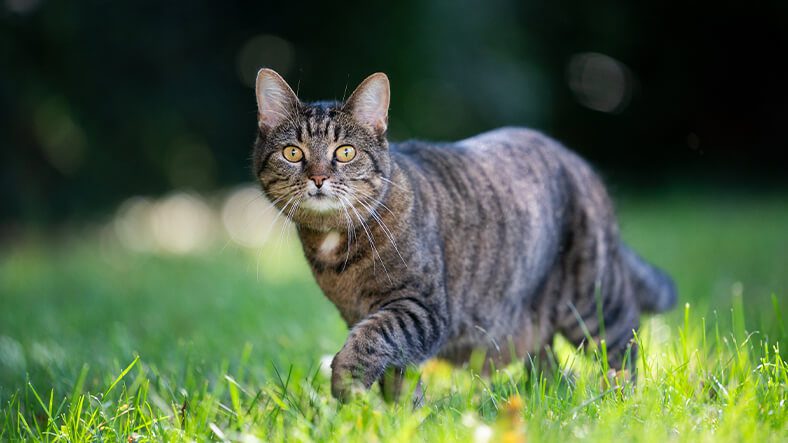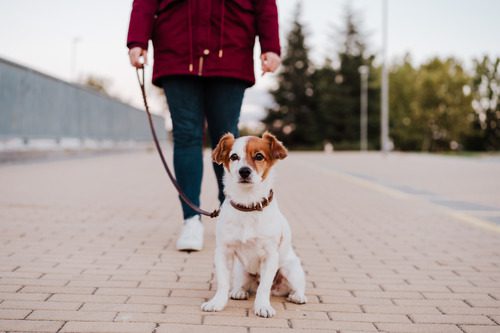Why is My Cat Limping?
Seeing your cat limping can be worrying. It’s a sign that something isn’t quite right, and understanding the reasons behind it is the first step toward helping your beloved pet. This blog aims to shed light on the various causes of cat limping and emphasizes the importance of professional veterinary care for diagnosing and treating the issue. If you notice your cat showing signs of discomfort or limping, reaching out to The Village Vets – Plymouth Meeting in Plymouth Meeting, PA, at (484) 820-1700 is a wise choice. Our team is ready to assist, offering expert advice and care to ensure your cat’s health and happiness.

Common Causes of Limping in Cats
Injuries
One of the most frequent reasons a cat might start limping is due to an injury. This could be anything from a simple sprain to more severe conditions like broken bones. Cats are curious creatures, and their adventurous nature sometimes leads them into harm’s way. If your cat has a sudden onset of limping, an injury could be the culprit. In these situations, it’s essential to get them checked by a vet who can properly assess the situation and provide the necessary care.
Joint Problems
As cats age, they can develop joint issues such as arthritis, which can cause limping. This condition leads to discomfort and pain, making it hard for them to move around as they used to. Joint problems are more common in older cats but can also affect younger ones. Regular vet visits can help identify these issues early on, allowing for a management plan to be put in place to ease your cat’s discomfort.
Paw and Pad Issues
The paws and pads of a cat are sensitive areas that can be affected by various problems, such as cuts, wounds, infections, or even foreign objects stuck in them. Since cats use their paws for walking, any issue in this area can lead to limping. Regularly checking your cat’s paws and keeping them clean can help prevent these issues, but if limping occurs, a vet visit is necessary to address the problem correctly.
Infectious Diseases
Certain infectious diseases can cause limping in cats. These include conditions like calicivirus, which is a common viral infection in cats that can lead to joint pain and limping. It’s important to keep your cat up to date with their vaccinations and health check-ups to prevent such diseases and to seek veterinary advice if your cat starts limping.
When to Call the Vet
Understanding when to seek professional help is key to ensuring your cat’s health. If your cat is limping, it’s always best to err on the side of caution and contact The Village Vets – Plymouth Meeting. Here are some situations when calling the vet is crucial:
- The limping lasts more than a day
- There’s noticeable pain or discomfort
- The cat is also showing other signs of illness
- There’s a visible injury, wound, or swelling
Our skilled team can provide a thorough examination, diagnose the problem, and recommend the best course of action to get your cat back on their feet.
Prevention Tips
While not all causes of limping can be prevented, there are steps you can take to minimize the risk:
- Regular vet check-ups to catch any early signs of joint issues or diseases
- Keeping your cat’s living area safe to prevent injuries
- Regularly checking your cat’s paws for any signs of injury or foreign objects
Professional Care at The Village Vets – Plymouth Meeting
Attempting to treat your cat’s limping at home can sometimes do more harm than good. It’s essential to consult with a professional who can provide an accurate diagnosis and appropriate treatment plan. At The Village Vets – Plymouth Meeting, we’re committed to offering the best care for your cat, ensuring they receive the treatment they need to live a happy and healthy life.
If your cat is limping or showing any signs of discomfort, don’t wait. Call us at (484) 820-1700 for an appointment or more information. Our knowledgeable team is here to support you and your cat, providing expert care and advice every step of the way.
Recent Posts
About The Village Vets
The Village Vets of Plymouth Meeting offers excellent service to clients in a comfortable, friendly atmosphere. To learn more about us and how we can better serve you and your pet here in Plymouth Meeting, PA, click the button below.
Share This Post
Recent Posts
About The Village Vets
The Village Vets is a network of three animal hospitals based in Atlanta, GA and the surrounding area. We offer honest, excellent service to our clients in a comfortable, friendly atmosphere. To learn more about our locations and how we can better serve you and your pet, click the button below.




